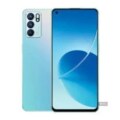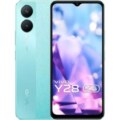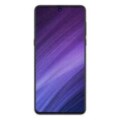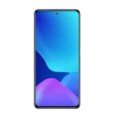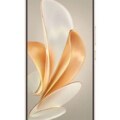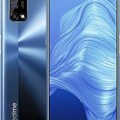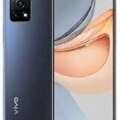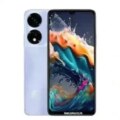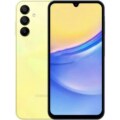PriceOka
Mobiles Price in Canada, USA, UAE, Pakistan
- Home
- All Mobiles
- Oppo K12 Pro
Warning: Undefined variable $schema in /home/u616672066/domains/priceoka.com/public_html/wp-content/plugins/aps-products/temps/aps-single.php on line 57
>Oppo K12 Pro
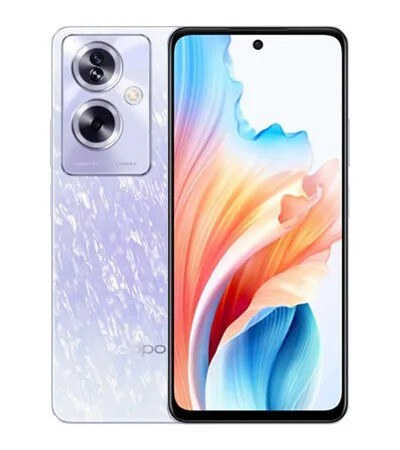
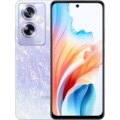

>Oppo K12 Pro



-
Display: 6.7 inches
-
Processor: Mediatek Dimensity 7200 Plus (6 nm)
-
RAM: 8 GB, 12 GB
-
Storage: 256 GB, 512 GB
-
Camera: 50 MP + 8 MP
-
Colours: Dark Chrome and Celadon Marble
-
Battery: 5500 mAh
Warning: Undefined variable $schema in /home/u616672066/domains/priceoka.com/public_html/wp-content/plugins/aps-products/temps/aps-single.php on line 151
>
>
About Oppo K12 Pro
- Price in Pakistan: 89,000/-
- Display: 6.7-inch AMOLED (~394 PPI)
- Processor: Octa-core Qualcomm Snapdragon 7 Gen 3
- RAM: 8 GB, 12 GB
- Storage: 256 GB, 512 GB
- Rear Camera: 50 MP + 8 MP
- Front Camera: 16 MP
- Battery: 5500mAh
- OS: Android 14
Oppo K12 Pro expected price in Pakistan starts from Rs: 89,999. Here are the detailed specifications and features of the Oppo K12 Pro for you to review.
Oppo K12 Pro Price in Pakistan
| Product Variant | Price |
|---|---|
| Oppo K12 Pro (256GB, 8GB RAM) | PKR 80,300 |
| Oppo K12 Pro (256GB, 12GB RAM) | PKR 92,500 |
| Oppo K12 Pro (512GB, 12GB RAM) | PKR 110,800 |
Oppo K12 Pro Specifications
General
| Brand | Oppo |
| Model | Oppo K12 Pro |
| Status | Coming Soon |
| Price | Rs: 89,000/- |
| Display Type <strong>Display Technology => </strong> A number of display technologies and types used in mobile phones => TFT (Thin Film Transistor), IPS (In-Place Switching), OLED (Organic Light Emitting Diode), AMOLED (Active-Matrix Organic Light-Emitting Diode), Super AMOLED (an even advanced version of AMOLED), Resistive Touchscreen (Resistive touchscreens contain two layer of conductive material with a very small gap between them which acts as a resistance), Capacitive Touchsceen (Capacitive touchscreen technology consists of a layer of glass coated with a transparent conductor) | 6.7 inches |
| Camera Features | 50 MP + 8 MP |
| RAM (Memory) <strong>RAM</strong> (Random Access Memory) is a type of computer memory that can be accessed randomly, any byte of memory can be accessed without touching the preceding bytes that allows information to be stored and accessed quickly from random locations. RAM is the most common type of memory found in computer systems, smartphones, tablets and other electronic devices. | 12 GB |
| Storage Type | Solid State Drive (SSD) |
| Colors | Dark Chrome and Celadon Marble |
| Battery Backup | 5500 mAh |
Network
| 4G Network |
1, 3, 5, 7, 8, 20, 38, 40, 41 |
| 5G Network | 1, 41, 77, 78, 79 SA/NSA |
| Technology | SATA |
| Speed | HSPA 21.1/5.76 Mbps, LTE, 5G |
Display
| Display Type <strong>Display Technology => </strong> A number of display technologies and types used in mobile phones => TFT (Thin Film Transistor), IPS (In-Place Switching), OLED (Organic Light Emitting Diode), AMOLED (Active-Matrix Organic Light-Emitting Diode), Super AMOLED (an even advanced version of AMOLED), Resistive Touchscreen (Resistive touchscreens contain two layer of conductive material with a very small gap between them which acts as a resistance), Capacitive Touchsceen (Capacitive touchscreen technology consists of a layer of glass coated with a transparent conductor) | IPS LCD capacitive touchscreen, 16M colors, 120Hz |
| Resolution | 1080 x 2400 pixels, 20:9 ratio |
| Features |
IPS LCD |
Main Camera
| Camera Setup | Dual |
| Resolution | 64MP |
| Features |
LED flash |
| Video | 1080p@30fps |
Front Camera
| Camera Setup | Yes |
| Resolution | 8 MP |
Performance
| Operating System <strong>OS => </strong> Every computer system run on a base software called Operating System (OS). Operating System controls all basic operations of the computer (such as smartphone, PDAs, tablet computers and other handheld devices). The Operating System allows the user to install and run third party applications (apps), apps are used to add new functionality to the device. | Android 14 |
| Chipset <strong>Chipset</strong> is a group of integrated circuits designed to perform one or a more dedicated functions, often with real time computing constraints, Popular smartphones are equipped with more advanced embedded chipsets that can do many different tasks depending on their programming. | MediaTek Dimensity 6300 |
| GPU <strong>GPU</strong> (Graphics Processing Unit) is a single-chip processor designed to rapidly manipulate and alter memory to accelerate the creation of images in a frame buffer intended for output to a display, This includes things such as lighting effects, object transformations, and 3D motion. | Mali-G57 |
| Card Slot <strong>Memory Card Slot</strong> is a special slot for inserting a memory card. Memory cards allow you to expand the phone's built-in memory, A memory card (sometimes called a flash memory card or a storage card) is a small storage medium used to store data such as text, pictures, audio, and video, for use on small, portable or remote computing devices such as mobile phones, mp3 players, digital cameras. | microSDXC (dedicated slot) |
| RAM (Memory) <strong>RAM</strong> (Random Access Memory) is a type of computer memory that can be accessed randomly, any byte of memory can be accessed without touching the preceding bytes that allows information to be stored and accessed quickly from random locations. RAM is the most common type of memory found in computer systems, smartphones, tablets and other electronic devices. | 6 GB |
| Secondary Storgae | 128 / 256 GB |
Battery
| Battery Type <strong>Battery Type => </strong> Cell phones run on various kinds of batteries depending on the manufacturer, phone size or shape and features. There are basically four types of cell phone batteries => Lithium Polymer, Lithium Ion, Nickel Metal Hydride and Nickel Cadmium. | Li-Ion (Lithium Ion) |
| Capacity <strong>Battery Capacity</strong> is a measure (typically in Amp-hr) of the charge stored by the battery, and is determined by the mass of active material contained in the battery. The battery capacity represents the maximum amount of energy that can be extracted from the battery under certain conditions. | 5000 Mah |
| Placement | None Removeable |
Extra Features
| Loudspeaker | 3.5mm Jack |
| Bluetooth <strong>Bluetooth</strong> is a wireless communications technology for exchanging data between mobile phones, headsets, computers and other network devices over short distances without wires, Bluetooth technology was primarily designed to support simple wireless networking of personal consumer devices. | Yes, 5.2, A2DP, LE |
| GPS <strong>GPS</strong> The Global Positioning System is a satellite-based radio navigation system, GPS permits users to determine their position, velocity and the time 24 hours a day, in all weather, anywhere in the world, In order to locate your position, your device or GPS receiver must have a clear view of the sky. | Yes, with A-GPS, GLONASS, BDS |
| USB | USB Type-C 2.0, USB On-The-Go |
| Sensors <strong>Sensors</strong> are electronic components that detects and responds to some type of input from the physical environment. The specific input could be light, heat, motion, moisture, pressure and location, The output is generally a signal that is converted to use in computing systems, a location sensor, such as a GPS receiver is able to detect current location of your electronic device. |
Fingerprint (side-mounted), accelerometer, gyro, proximity, compass |
| Wi-fi <strong>Wi-Fi</strong> is a popular wireless networking technology using radio waves to provide high-speed network connections that allows devices to communicate without cords or cables, Wi-Fi is increasingly becoming the preferred mode of internet connectivity all over the world. | Wi-Fi 802.11 a/b/g/n, hotspot |
